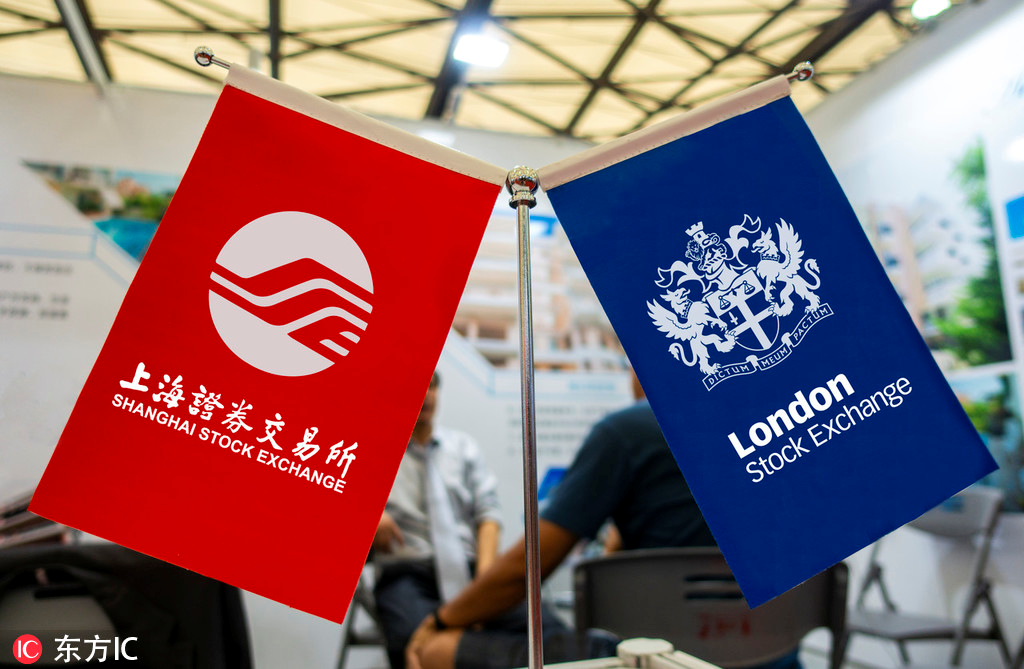Shanghai-London Stock Connect is a Game-Changer. Here’s why

[Photo/IC]
The Shanghai-London Stock Connect, an arrangement jointly developed by the Shanghai Stock Exchange (SSE) and the London Stock Exchange Group (LSEG) with support from the Chinese and UK government is a link that allows global investors to access China’s market via the London Stock Exchange (LSE) which concomitantly, opens a window of opportunity for Chinese companies listed on the LSE to engage international investors. While the Shanghai-London Stock Connect presents huge prospects for development on both sides of the aisle and the world as a whole, this potential remains largely untapped. After the Shanghai-London Stock Connect was launched in 2019, it was expected that about 260 companies listed on the SSE could be listed on the LSE but after nearly 3 years of its existence, only four Chinese firms, namely, Huatai Securities, Pacific Insurance, Yangtze Power, and SDIC Power have succeeded in issuing stocks on this platform.
While the slow progress is largely attributed to the outbreak of the COVID-19 pandemic, fortunately, this situation has not reduced the potential of the Shanghai-London Stock Connect as there is a growing list of British companies together with other global investors that are eager to enter the Chinese capital market, mainly because the world’s second largest market is increasingly becoming attractive – according to the Financial Times, in 2021 alone, global holdings of Chinese stocks and bonds rose by US$120 billion with international investors holding US$1.1 trillion of equity and fixed income securities priced in renminbi as of the end of September 2021, representing an increase of about Rmb760 billion from the end of 2020. The resilience of the Chinese currency amidst the economic disruptions caused by the COVID-19 pandemic has boosted investor confidence in buying renminbi assets. This is driving global capital into China’s domestic market with the ultimate goal being to pursue greater diversification and rake in higher returns – a clear indication that the mainland Chinese market is increasingly becoming a centre of attraction for global investors. However, this pattern of growth also shows that investors are accessing the mainland Chinese market directly rather than via financial instruments listed on global financial hubs such as those in New York and Hong Kong.
While the slow progress is largely attributed to the outbreak of the COVID-19 pandemic, fortunately, this situation has not reduced the potential of the Shanghai-London Stock Connect as there is a growing list of British companies together with other global investors that are eager to enter the Chinese capital market, mainly because the world’s second largest market is increasingly becoming attractive – according to the Financial Times, in 2021 alone, global holdings of Chinese stocks and bonds rose by US$120 billion with international investors holding US$1.1 trillion of equity and fixed income securities priced in renminbi as of the end of September 2021, representing an increase of about Rmb760 billion from the end of 2020. The resilience of the Chinese currency amidst the economic disruptions caused by the COVID-19 pandemic has boosted investor confidence in buying renminbi assets. This is driving global capital into China’s domestic market with the ultimate goal being to pursue greater diversification and rake in higher returns – a clear indication that the mainland Chinese market is increasingly becoming a centre of attraction for global investors. However, this pattern of growth also shows that investors are accessing the mainland Chinese market directly rather than via financial instruments listed on global financial hubs such as those in New York and Hong Kong.

Photo shows the exterior view of Shanghai Stock Exchange at Pudong New Area in Shanghai, east China. (Xinhua)
Expanding the Shanghai-London Connect scheme to include capital markets in Germany and Switzerland could be a game-changer. Amalgamating these bourses further opens up China’s markets to global capital and facilitates cross-border investments – a strategy that has the tendency to significantly spur innovation and promote economic growth in China. In other words, as high-growth Chinese firms secure global funds to pursue riskier projects that are traditionally not supported by China’s banking sector, the flow of international capital into the Chinese economy could enhance innovation across industries, foster economic growth, create more jobs and promote development.
Does the Chinese Market have the Potential to Meet the Demands of Global Investors?
Conversely, investors in the UK, Germany, and Switzerland together with other global investors will also benefit enormously from tapping into China’s capital market. Recent data suggest that China’s capital market is expected to more than triple to US$100 trillion by 2030, a strong indication that the country’s economic rise will continue to grow by leaps and bounds.
Since China began opening up and undertaking economic reforms in 1978, the economy of China has averaged about 10 percent GDP growth per year in the last four decades. During this period, China’s economic growth has created a considerable share of new wealth that has lifted more than 800 million people from poverty and increased the country’s middle class rapidly - a remarkable economic progress. As of 2018, China was the world’s second largest economy, after the United States. In purchasing power parity (PPP) terms, China’s GDP was already the largest in the world. Furthermore, in the same year, China’s global middle-class had reached 25 percent of the country’s entire population; in absolute size this was almost twice the share of the global middle-class of the United States and similar in size to that of Europe. In the last four decades the burgeoning growth of China’s middle-class has shifted the centre of gravity of the global middle-class.
In the past, middle-class consumers in North America and Europe were the epicentre of the global demand, this was when China’s proportion of the world’s middle-class was very small. But now this is changing, as China’s middle-class is rapidly growing and the population of the middle-class in high-income countries is either stagnating or shrinking. With this tremendous potential in China, the Shanghai-London Stock Connect which is integrating capital markets in Germany and Switzerland presents a rare opportunity for global investors to access the Chinese market where consumer behaviour is currently skewing towards financial instruments.
About the author: Alexander Ayertey Odonkor is the founder and leading expert at the Ghana Centre for China Studies, Africa’s preeminent and most comprehensive platform exclusively dedicated to authoritative interpretation of China’s domestic and foreign policies.
Production credits: This commentary is produced by the Ghana Centre for China Studies.
At the Ghana Centre for China Studies we eschew specific policy positions. All positions and opinions expressed in this publication are solely those of the author (s).